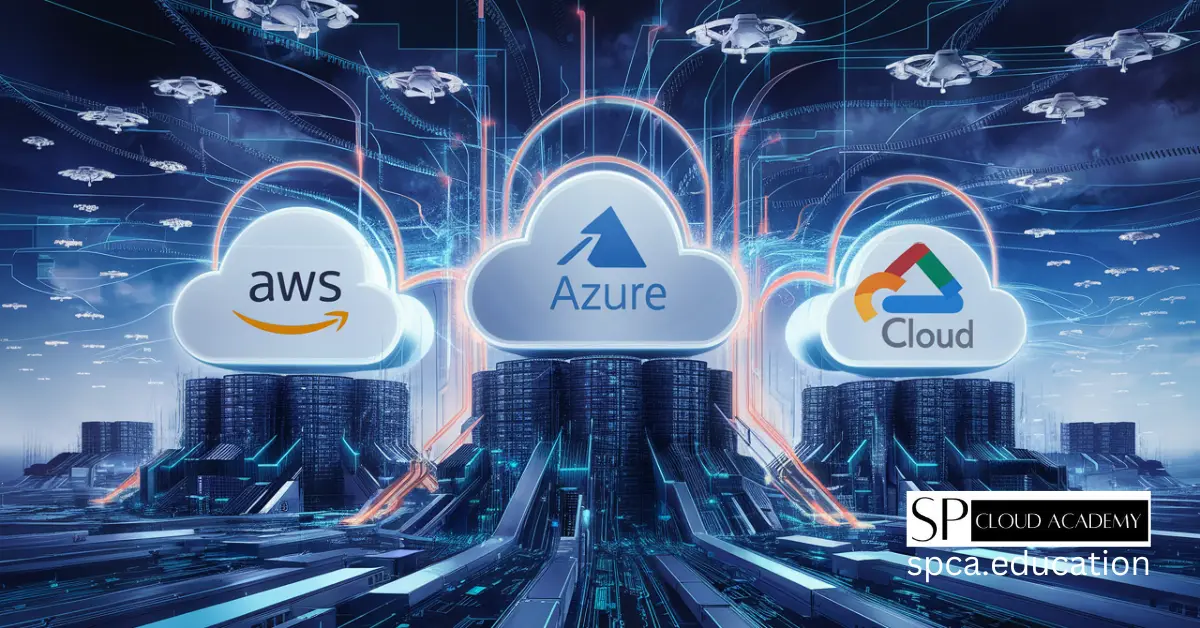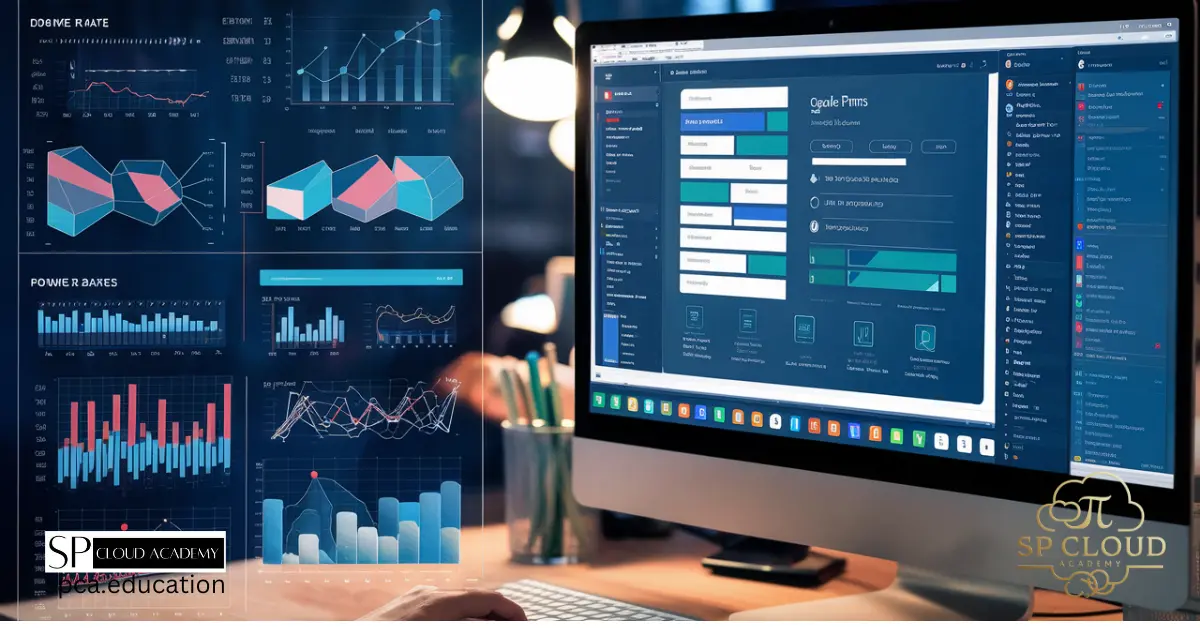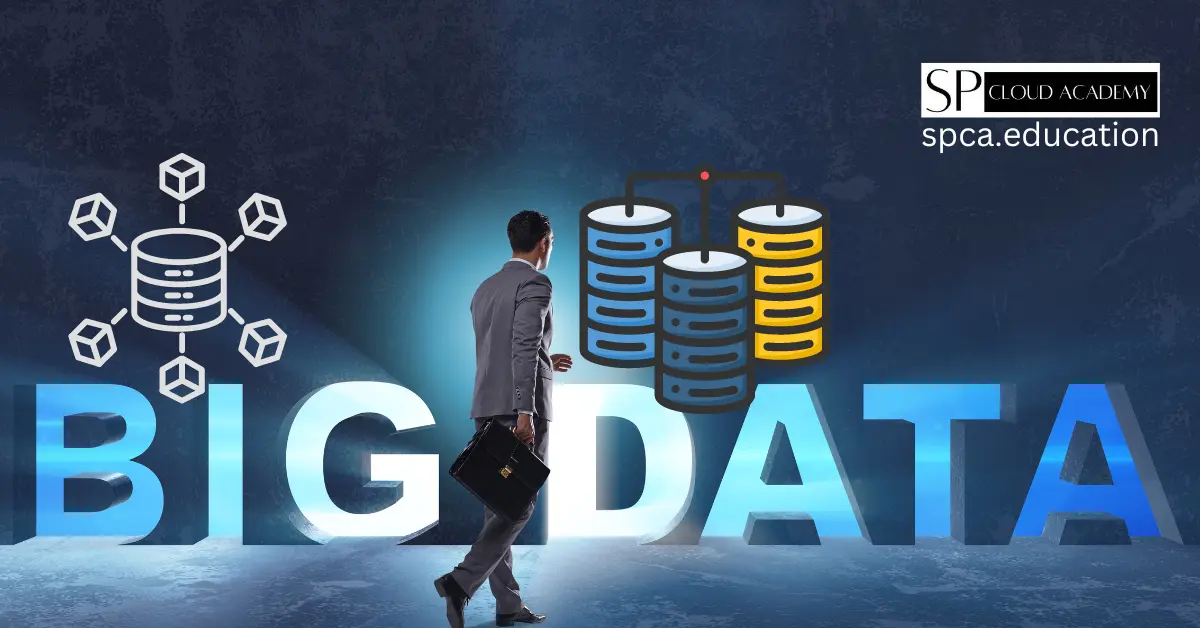Introduction
In the ever-evolving landscape of technology, cloud databases have emerged as a cornerstone of modern data management. As we approach 2025, the role of cloud databases in transforming data storage is more pronounced than ever. Leading cloud service providers like Amazon Web Services (AWS), Microsoft Azure, and Google Cloud are at the forefront of this transformation, offering innovative solutions that cater to the diverse needs of businesses across the globe. This article delves into the future of cloud databases, exploring how AWS, Azure, and Google Cloud are revolutionizing data storage, and what this means for businesses in 2025.
The Evolution of Cloud Databases
From On-Premises to Cloud: A Paradigm Shift
The journey from traditional on-premises databases to cloud-based solutions has been nothing short of revolutionary. On-premises databases, while reliable, come with significant limitations, including high upfront costs, limited scalability, and the need for constant maintenance. The advent of cloud databases has addressed these challenges, offering scalable, cost-effective, and maintenance-free solutions.
The Rise of Cloud Databases
Cloud databases have gained immense popularity due to their ability to provide seamless scalability, high availability, and robust security. These databases are hosted on cloud platforms, allowing businesses to store and manage their data without the need for physical infrastructure. As we move towards 2025, the adoption of cloud databases is expected to skyrocket, driven by the increasing demand for data-driven decision-making and the proliferation of IoT devices.
AWS, Azure, and Google Cloud: The Titans of Cloud Databases
Amazon Web Services (AWS)
Overview
Amazon Web Services (AWS) is a pioneer in the cloud computing industry, offering a comprehensive suite of cloud database services. AWS provides a wide range of database solutions, including relational databases, NoSQL databases, and data warehousing services.
Key Offerings
- Amazon RDS (Relational Database Service): Amazon RDS is a fully managed relational database service that supports multiple database engines, including MySQL, PostgreSQL, Oracle, and SQL Server. It offers automated backups, patch management, and scalability, making it an ideal choice for businesses of all sizes.
- Amazon DynamoDB: DynamoDB is a fully managed NoSQL database service that provides fast and predictable performance with seamless scalability. It is designed to handle large volumes of data and is widely used for applications that require low-latency data access.
- Amazon Redshift: Redshift is a fully managed data warehousing service that allows businesses to analyze large datasets using SQL. It offers high performance, scalability, and cost-effectiveness, making it a popular choice for data analytics and business intelligence.
Innovations in 2025
By 2025, AWS is expected to introduce several innovations in its cloud database offerings. These include enhanced machine learning capabilities, improved security features, and greater integration with other AWS services. AWS is also likely to focus on reducing latency and improving performance, ensuring that businesses can access their data in real-time.
Microsoft Azure
Overview
Microsoft Azure is another major player in the cloud computing industry, offering a wide range of cloud database services. Azure’s database solutions are known for their integration with Microsoft’s ecosystem, making them a popular choice for businesses that rely on Microsoft products.
Key Offerings
- Azure SQL Database: Azure SQL Database is a fully managed relational database service that offers high availability, scalability, and security. It supports a wide range of applications, from small web apps to large enterprise solutions.
- Azure Cosmos DB: Cosmos DB is a fully managed NoSQL database service that provides global distribution, low latency, and high availability. It supports multiple data models, including document, key-value, graph, and column-family, making it a versatile choice for modern applications.
- Azure Synapse Analytics: Synapse Analytics is a fully managed data warehousing service that integrates big data and data warehousing. It offers powerful analytics capabilities, allowing businesses to gain insights from their data in real-time.
Innovations in 2025
In 2025, Microsoft Azure is expected to focus on enhancing its database services with advanced AI and machine learning capabilities. Azure is also likely to improve its global distribution and latency, ensuring that businesses can access their data from anywhere in the world with minimal delay. Additionally, Azure is expected to offer greater integration with other Microsoft services, such as Office 365 and Dynamics 365.
Google Cloud
Overview
Google Cloud is a leading cloud service provider that offers a wide range of database solutions. Known for its innovation and cutting-edge technology, Google Cloud is a popular choice for businesses looking to leverage the power of cloud databases.
Key Offerings
- Cloud SQL: Cloud SQL is a fully managed relational database service that supports MySQL, PostgreSQL, and SQL Server. It offers high availability, scalability, and security, making it an ideal choice for businesses of all sizes.
- Cloud Spanner: Cloud Spanner is a fully managed relational database service that offers global distribution, strong consistency, and horizontal scalability. It is designed for mission-critical applications that require high availability and low latency.
- BigQuery: BigQuery is a fully managed data warehousing service that allows businesses to analyze large datasets using SQL. It offers high performance, scalability, and cost-effectiveness, making it a popular choice for data analytics and business intelligence.
Innovations in 2025
By 2025, Google Cloud is expected to introduce several innovations in its cloud database offerings. These include enhanced AI and machine learning capabilities, improved security features, and greater integration with other Google Cloud services. Google Cloud is also likely to focus on reducing latency and improving performance, ensuring that businesses can access their data in real-time.
The Impact of Cloud Databases on Data Storage in 2025
Scalability and Flexibility
One of the most significant advantages of cloud databases is their ability to scale seamlessly. In 2025, businesses will continue to generate vast amounts of data, and the need for scalable storage solutions will be more critical than ever. Cloud databases offered by AWS, Azure, and Google Cloud provide the flexibility to scale up or down based on demand, ensuring that businesses can manage their data efficiently without incurring unnecessary costs.
Cost-Effectiveness
Cloud databases offer a cost-effective alternative to traditional on-premises databases. By 2025, businesses will be able to leverage the pay-as-you-go pricing models offered by AWS, Azure, and Google Cloud, allowing them to pay only for the resources they use. This will enable businesses to reduce their IT infrastructure costs and allocate their resources more effectively.
Enhanced Security
Security is a top priority for businesses when it comes to data storage. In 2025, cloud databases will continue to evolve, offering enhanced security features to protect sensitive data. AWS, Azure, and Google Cloud are investing heavily in security, providing features such as encryption, identity and access management, and threat detection. These advancements will ensure that businesses can store their data securely in the cloud.
Real-Time Data Access
In 2025, the ability to access data in real-time will be crucial for businesses. Cloud databases offered by AWS, Azure, and Google Cloud are designed to provide low-latency access to data, ensuring that businesses can make informed decisions quickly. Real-time data access will be particularly important for applications such as IoT, e-commerce, and financial services, where timely data is critical.
Integration with AI and Machine Learning
The integration of AI and machine learning with cloud databases will be a game-changer in 2025. AWS, Azure, and Google Cloud are already offering AI and machine learning capabilities as part of their database services. By 2025, these capabilities will be more advanced, allowing businesses to gain deeper insights from their data. AI and machine learning will enable businesses to automate data analysis, predict trends, and make data-driven decisions with greater accuracy.
Global Distribution
As businesses continue to expand globally, the need for globally distributed databases will increase. In 2025, cloud databases offered by AWS, Azure, and Google Cloud will provide global distribution, ensuring that businesses can access their data from anywhere in the world with minimal latency. This will be particularly important for businesses with a global presence, as it will enable them to deliver a consistent user experience across different regions.
Challenges and Considerations
Data Privacy and Compliance
While cloud databases offer numerous benefits, businesses must also consider data privacy and compliance. In 2025, data privacy regulations will continue to evolve, and businesses will need to ensure that their cloud database solutions comply with these regulations. AWS, Azure, and Google Cloud are committed to helping businesses meet their compliance requirements, but it is ultimately the responsibility of businesses to ensure that their data is stored and managed in accordance with applicable laws.
Vendor Lock-In
Vendor lock-in is a potential concern for businesses using cloud databases. In 2025, businesses will need to carefully consider the long-term implications of choosing a specific cloud provider. While AWS, Azure, and Google Cloud offer a wide range of services, migrating data from one provider to another can be complex and costly. Businesses should evaluate their options and consider multi-cloud strategies to mitigate the risk of vendor lock-in.
Data Migration
Data migration is another challenge that businesses may face when adopting cloud databases. In 2025, businesses will need to plan and execute data migration carefully to ensure minimal disruption to their operations. AWS, Azure, and Google Cloud offer tools and services to facilitate data migration, but businesses must still consider factors such as data volume, compatibility, and downtime.
The Future of Cloud Databases: Trends to Watch in 2025
Serverless Databases
Serverless databases are gaining traction as a cost-effective and scalable solution for modern applications. In 2025, serverless databases offered by AWS, Azure, and Google Cloud will become more prevalent, allowing businesses to focus on their applications without worrying about infrastructure management. Serverless databases will offer automatic scaling, high availability, and pay-as-you-go pricing, making them an attractive option for businesses of all sizes.
Multi-Model Databases
Multi-model databases, which support multiple data models within a single database, are becoming increasingly popular. In 2025, AWS, Azure, and Google Cloud will continue to enhance their multi-model database offerings, providing businesses with greater flexibility and versatility. Multi-model databases will enable businesses to store and manage different types of data, such as relational, document, and graph data, in a single database, simplifying data management and reducing complexity.
Edge Computing and Cloud Databases
Edge computing, which involves processing data closer to the source of generation, is expected to play a significant role in 2025. Cloud databases will integrate with edge computing, enabling businesses to process and analyze data at the edge while still leveraging the power of the cloud. This will be particularly important for applications that require low latency, such as IoT and real-time analytics.
Blockchain and Cloud Databases
The Blockchain technology is expected to have a significant impact on cloud databases in 2025. Blockchain offers a decentralized and secure way to store and manage data, and cloud providers like AWS, Azure, and Google Cloud are exploring ways to integrate blockchain with their database services. In 2025, businesses may see the emergence of blockchain-based cloud databases that offer enhanced security, transparency, and immutability.
Quantum Computing and Cloud Databases
Quantum computing, while still in its early stages, has the potential to revolutionize data storage and processing. In 2025, cloud providers like AWS, Azure, and Google Cloud may begin to explore the integration of quantum computing with their database services. Quantum computing could enable faster data processing, advanced encryption, and new possibilities for data analysis, opening up new opportunities for businesses.
Conclusion
As we look ahead to 2025, it is clear that cloud databases will play a pivotal role in transforming data storage. AWS, Azure, and Google Cloud are leading the charge, offering innovative solutions that cater to the diverse needs of businesses. From scalability and cost-effectiveness to enhanced security and real-time data access, cloud databases are poised to revolutionize the way businesses store and manage their data.
However, businesses must also be mindful of the challenges and considerations associated with cloud databases, such as data privacy, vendor lock-in, and data migration. By carefully evaluating their options and staying informed about the latest trends, businesses can leverage the power of cloud databases to drive innovation and achieve their goals in 2025 and beyond.
The future of cloud databases is bright, and the advancements made by AWS, Azure, and Google Cloud will continue to shape the landscape of data storage. As businesses embrace these technologies, they will be better equipped to navigate the complexities of the digital age and unlock new opportunities for growth and success.
See Also
-

How to Leverage Google BigQuery for Real-Time Data Insights
-

Cloud Databases in 2025: How AWS, Azure, and Google Cloud are Transforming Data Storage
-

How Databases Work: A Simple Yet Powerful Explanation for Everyone
-

Google Forms and Power BI: A Step-by-Step Guide to Effortless Data Collection and Visualization
-

Demystifying Big Data: A Comprehensive Guide to Definition, Functionality, and Applications
-

Revolutionizing Industries with Big Data and AI: Unleashing the Power of Advanced Analytics
-

The Power of Data-Driven Decisions: Unlocking Success Through Insightful Analytics